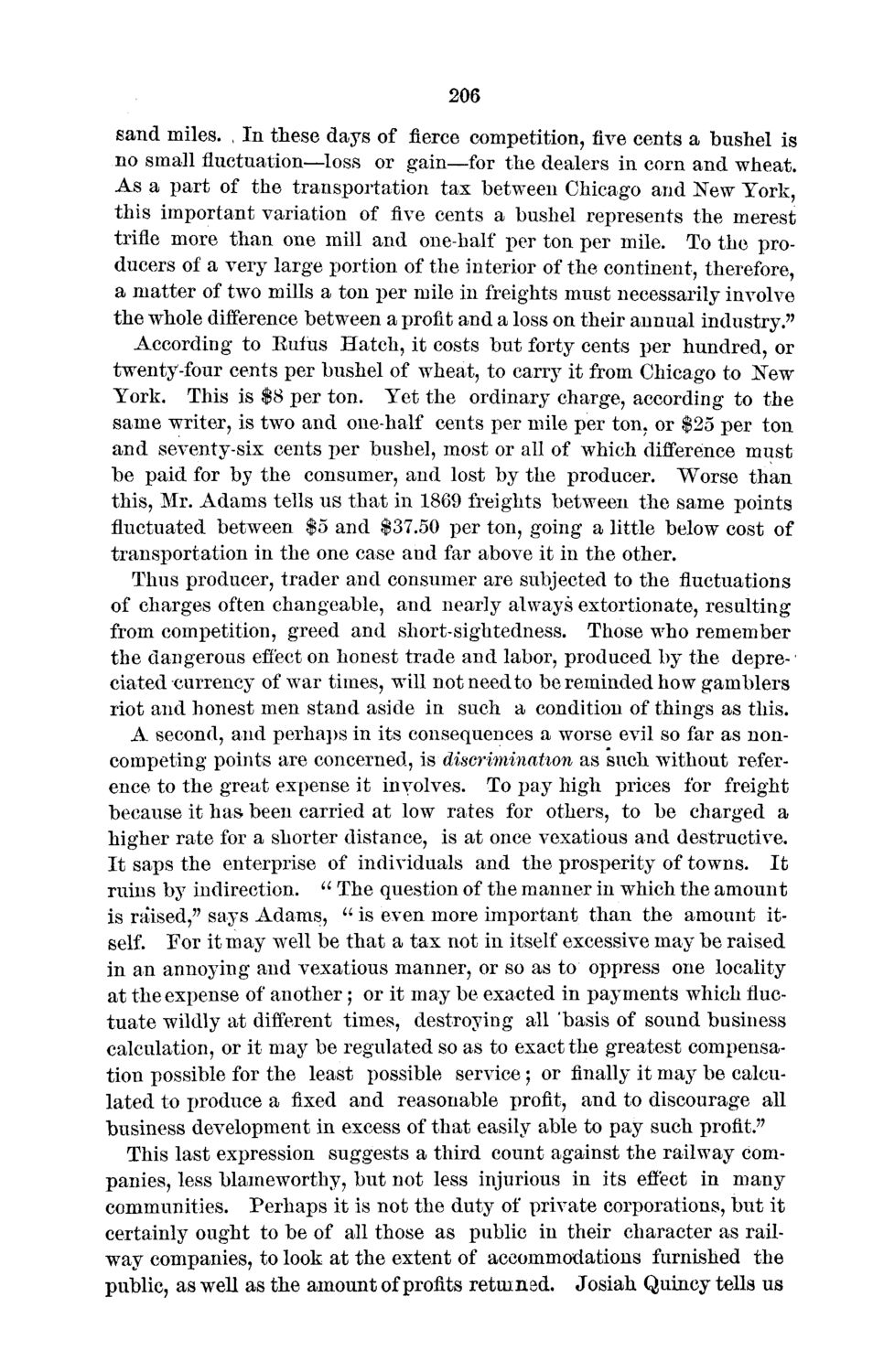| |
| |
Caption: Board of Trustees Minutes - 1872
This is a reduced-resolution page image for fast online browsing.

EXTRACTED TEXT FROM PAGE:
206 sand miles. , In these days of fierce competition, iive cents a bushel is no small fluctuation—loss or gain—for the dealers in corn and wheat. As a part of the transportation tax between Chicago and New York, this important variation of five cents a bushel represents the merest trifle more than one mill and one-half per ton per mile. To the producers of a very large portion of the interior of the continent, therefore, a matter of two mills a ton per mile in freights must necessarily involve the whole difference between a profit and a loss on their annual industry." According to Eufus Hatch, it costs but forty cents per hundred, or twenty-four cents per bushel of wheat, to carry it from Chicago to New York. This is $8 per ton. Yet the ordinary charge, according to the same writer, is two and one-half cents per mile per ton, or $25 per ton and seventy-six cents per bushel, most or all of which difference must be paid for by the consumer, and lost by the producer. Worse than this, Mr. Adams tells us that in 1869 freights between the same points fluctuated between $5 and $37.50 per ton, going a little below cost of transportation in the one case and far above it in the other. Thus producer, trader and consumer are subjected to the fluctuations of charges often changeable, and nearly always extortionate, resulting from competition, greed and short-sightedness. Those who remember the dangerous effect on honest trade and labor, produced by the depreciated currency of war times, will not need to be reminded how gamblers riot and honest men stand aside in such a condition of things as this. A second, and perhaps in its consequences a worse evil so far as noncompeting points are concerned, is discrimination as such without reference to the great expense it involves. To pay high prices for freight because it has been carried at low rates for others, to be charged a higher rate for a shorter distance, is at once vexatious and destructive. It saps the enterprise of individuals and the prosperity of towns. I t ruins by indirection. " The question of the manner in which the amount is raised," says Adams, " is even more important than the amount itself. For it may well be that a tax not in itself excessive may be raised in an annoying and vexatious manner, or so as to oppress one locality at the expense of another; or it may be exacted in payments which fluctuate wildly at different times, destroying all 'basis of sound business calculation, or it may be regulated so as to exact the greatest compensation possible for the least possible service$ or finally it may be calculated to produce a fixed and reasonable profit, and to discourage all business development in excess of that easily able to pay such profit." This last expression suggests a third count against the railway companies, less blameworthy, but not less injurious in its effect in many communities. Perhaps it is not the duty of private corporations, but it certainly ought to be of all those as public in their character as railway companies, to look at the extent of accommodations furnished the public, as well as the amount of profits returned. Josiah Quincy tells us
| |